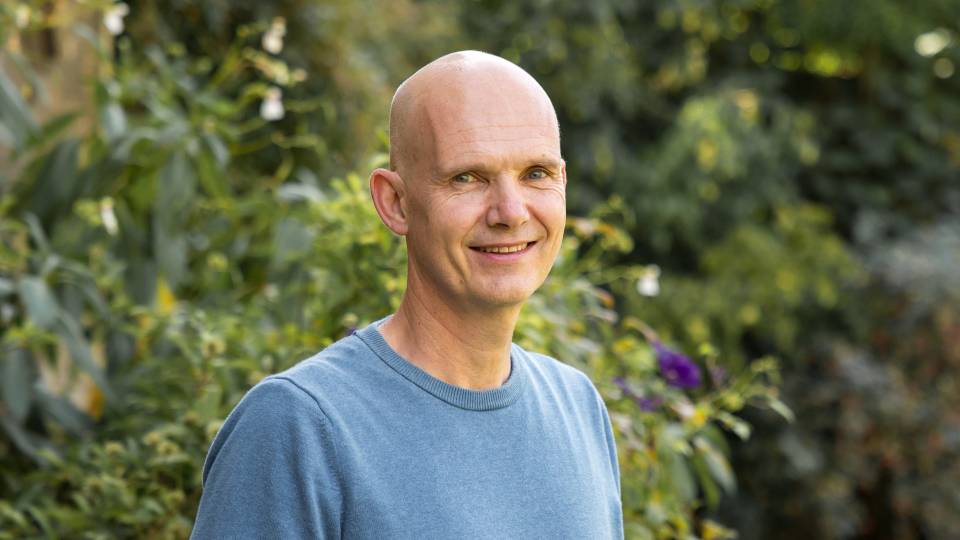Princeton's Lynn Loo (left) and Philip Holmes (right).
Philip John Holmes, who harnessed the mathematics of chaos for engineering applications, and Yueh-Lin (Lynn) Loo, a leading expert in clean energy technologies and champion of maritime shipping decarbonization, have been elected members of the National Academy of Engineering (NAE), announced on Feb. 11.
In addition to the two professors, four Princeton alumni — Marsha Anderson Bomar, Susan L. Brantley, Pei Cao and Marian Gindy — were also elected to the 2025 class, which included 128 members and 22 international members. Membership in the NAE is widely seen as one of the highest honors in the engineering profession.
Philip John Holmes
Holmes, professor of mechanical and aerospace engineering, emeritus, was elected for “the application of methods of nonlinear analysis and chaotic dynamics to engineering systems.” He developed foundational mathematical tools to analyze and predict the behavior of chaotic systems. He has applied these tools to study real-world problems including turbulence, animal movement, and brain and nervous system functions. He co-authored four textbooks on dynamical systems, chaos theory, and complex 3D flows. His 1983 textbook, “Nonlinear Oscillations, Dynamical Systems, and Bifurcations of Vector Fields,” co-authored with John Guckenheimer, is considered a landmark work for studying the behavior of complex systems across scientific disciplines.
Holmes is an associated faculty member in mathematics and the Princeton Neuroscience Institute. He directed Princeton’s Program in Applied Computational Mathematics from 1994 to 1997 and again in 2010 and 2011. He is a member of the American Academy of Arts and Sciences; a fellow of the American Physical Society, the Society for Industrial and Applied Mathematics, and the American Mathematical Society; and an honorary member of the Hungarian Academy of Sciences. He has also published four collections of poetry; the second won an Eric Gregory Award (U.K. Society of Authors) in 1975 and the third, “The Green Road,” was a Poetry Book Society recommendation for 1986. His fourth collection, “Lighting the Steps,” was published by Anvil Press in 2002.
Holmes joined Princeton in 1994 as a professor of mechanics and applied mathematics. He earned his bachelor’s degree in engineering science at the University of Oxford and his Ph.D. in engineering at the University of Southampton in 1974. His first academic position was at Cornell University as a professor of theoretical and applied mechanics. He retired in 2015 after 42 years as a professor, including 20 at Princeton. He supervised 37 Ph.D. and three master’s theses and mentored 25 postdoctoral scholars.
Yueh-Lin (Lynn) Loo
Loo, the Theodora D. ’78 and William H. Walton III ’74 Professor in Engineering, a professor of chemical and biological engineering, and a 2001 graduate alumna in chemical engineering, was elected for “contributions in developing processing-structure-property relationships in organic, polymer, and hybrid electronic materials, and leadership in decarbonizing shipping.”
Loo has driven major advances in solar-cell technology throughout her research career. While conventional solar cells are made from silicon, Loo has focused on other classes of materials, especially organic variants. By studying what she calls the “processing-structure-property” relationships of these materials, she has developed techniques for manufacturing organic electronics at far lower costs and/or longer lifetimes than traditional methods. This work has also enabled new forms for solar cells — in flexible, transparent films that can be used in a much wider range of applications than silicon. She has also led the way on creating stable, efficient solar cells from a class of materials called perovskites, which promise to further broaden the possibilities for solar energy.
From 2016 to 2021, Loo served as the second director of Princeton’s Andlinger Center for Energy and the Environment, where she commissioned the Net-Zero America Study. In 2021 she became the founding CEO of the Global Centre for Maritime Decarbonisation (GCMD), a Singapore-based nonprofit organization that aims to slash the carbon footprint associated with international shipping. Under her leadership, GCMD has launched several industry-first initiatives to lower the risks of adopting clean fuels, especially for first movers. They have developed and piloted safety and operational protocols for ammonia bunkering, a promising refueling process that had posed challenges for the industry. They have also demonstrated biofuels tracing solutions to strengthen supply chain integrity. Loo also co-founded a company in 2017, Andluca Technologies, a maker of smart-window products that draw on research from her Princeton lab.
Loo is a fellow of the American Physical Society (APS) and the Materials Research Society. Past honors include an Owens-Corning Award and the Alan P. Colburn Award from the American Institute of Chemical Engineers, a John H. Dillon Medal from the APS, an Alfred Sloan Fellowship and an NSF CAREER Award, among many others. In 2004 she was named one of the World’s Top 100 Young Innovators by the MIT Technology Review, and in 2012 she was recognized as a Young Global Leader of the World Economic Forum. Loo spent one year as a postdoctoral researcher at Bell Labs and five years as an assistant professor at the University of Texas-Austin. She joined the Princeton faculty as an associate professor in 2007.
Alumni
Marsha Anderson Bomar, MSE in civil engineering, 1978
Anderson Bomar, president-elect of the American Society of Civil Engineers, was elected for “advancing sustainable passenger and freight ground transportation systems and land use development.”
Susan L. Brantley, AB in chemistry, 1980; Ph.D. in geological and geophysical sciences, 1987
Brantley, the Evan Pugh University Professor Emeritus and Atherton Professor, Department of Geosciences, Pennsylvania State University, was elected for “elucidating chemical, biological, and physical processes associated with the circulation of aqueous fluids in shallow hydrogeologic settings.”
Pei Cao, Ph.D. in computer science, 1996
Cao, vice president of engineering at YouTube Trust & Safety, was elected for “contributions to web caching, search engine efficiency, and information quality.”
Marian Gindy, Ph.D. in chemical engineering, 2008
Gindy, Merck's vice president of Small Molecule Science and Technology, Manufacturing Division, was elected for “pharmaceutical product innovation and for transforming new technology concepts into robust platforms, processes, and products.”




